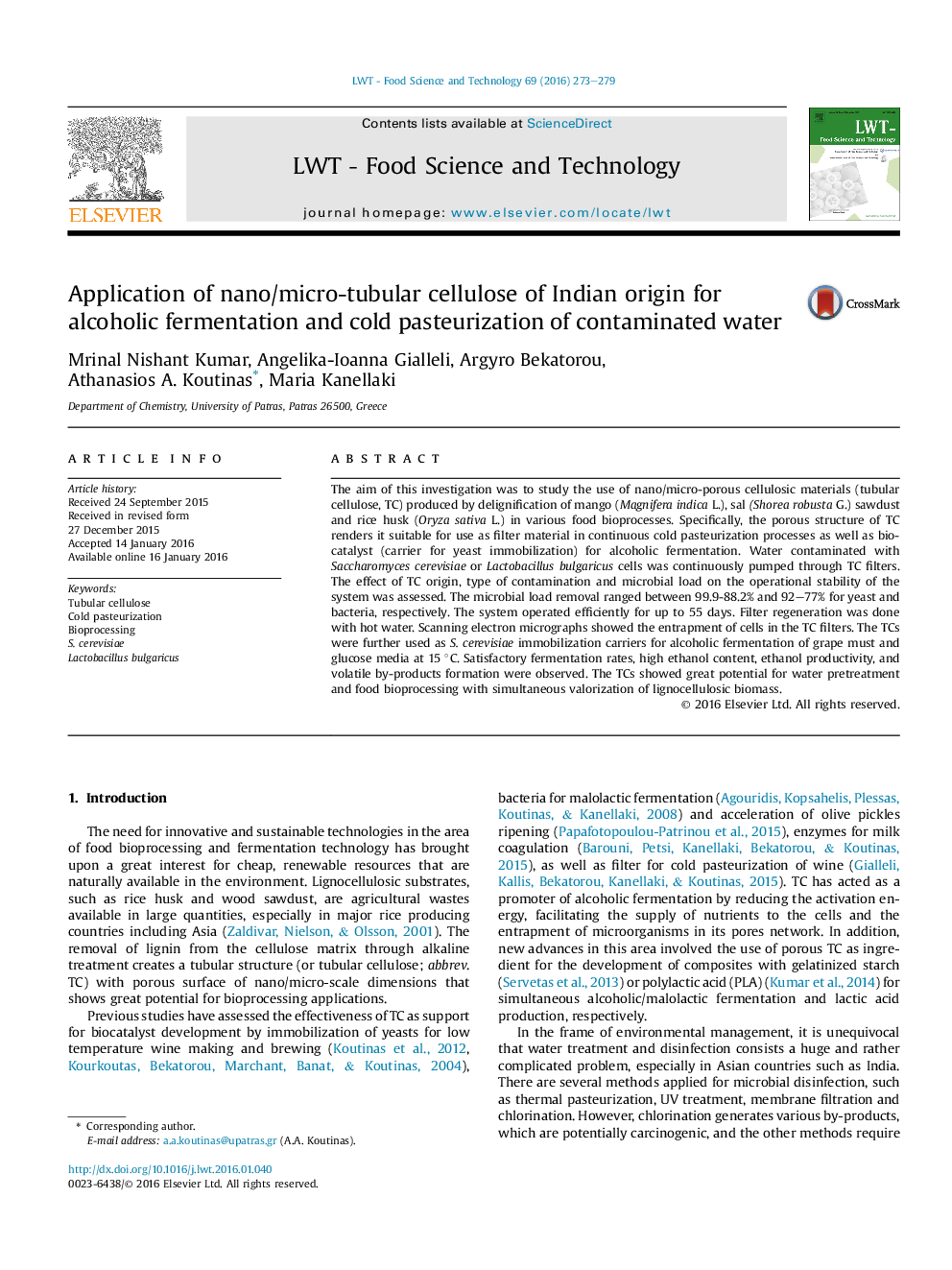| کد مقاله | کد نشریه | سال انتشار | مقاله انگلیسی | نسخه تمام متن |
|---|---|---|---|---|
| 4563746 | 1628528 | 2016 | 7 صفحه PDF | دانلود رایگان |

• Indian origin nano/micro-porous cellulosics (TCs) for bioprocess development.
• Novel cold pasteurization method for water based on the TC filters.
• Assessment of different TCs (mango, sal, rice) on system operational stability.
• TCs effectively removed S. cerevisiae and L. bulgaricus cells from water.
• TCs effectively used for alcoholic fermentation composite biocatalysts development.
The aim of this investigation was to study the use of nano/micro-porous cellulosic materials (tubular cellulose, TC) produced by delignification of mango (Magnifera indica L.), sal (Shorea robusta G.) sawdust and rice husk (Oryza sativa L.) in various food bioprocesses. Specifically, the porous structure of TC renders it suitable for use as filter material in continuous cold pasteurization processes as well as biocatalyst (carrier for yeast immobilization) for alcoholic fermentation. Water contaminated with Saccharomyces cerevisiae or Lactobacillus bulgaricus cells was continuously pumped through TC filters. The effect of TC origin, type of contamination and microbial load on the operational stability of the system was assessed. The microbial load removal ranged between 99.9-88.2% and 92–77% for yeast and bacteria, respectively. The system operated efficiently for up to 55 days. Filter regeneration was done with hot water. Scanning electron micrographs showed the entrapment of cells in the TC filters. The TCs were further used as S. cerevisiae immobilization carriers for alcoholic fermentation of grape must and glucose media at 15 °C. Satisfactory fermentation rates, high ethanol content, ethanol productivity, and volatile by-products formation were observed. The TCs showed great potential for water pretreatment and food bioprocessing with simultaneous valorization of lignocellulosic biomass.
Journal: LWT - Food Science and Technology - Volume 69, June 2016, Pages 273–279